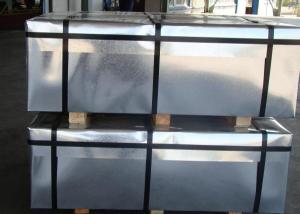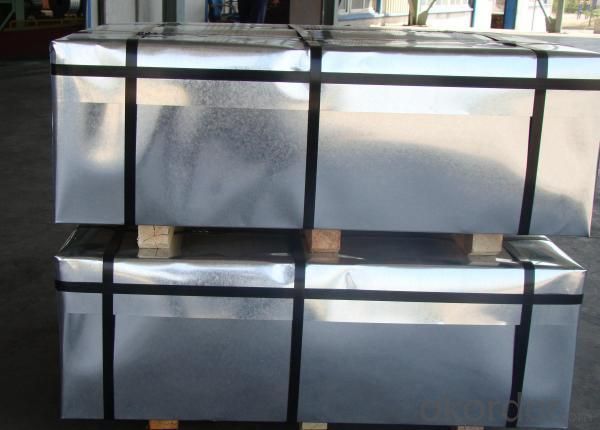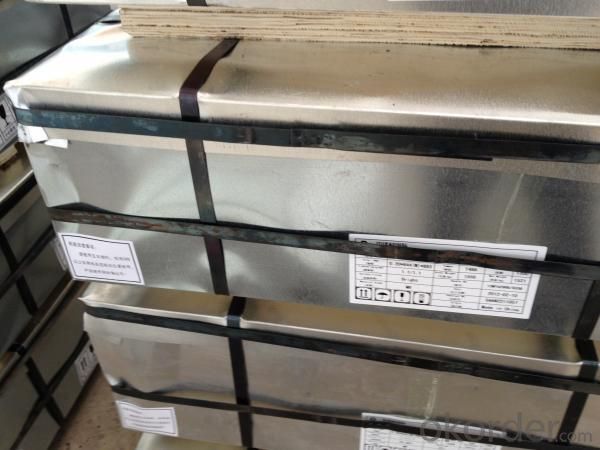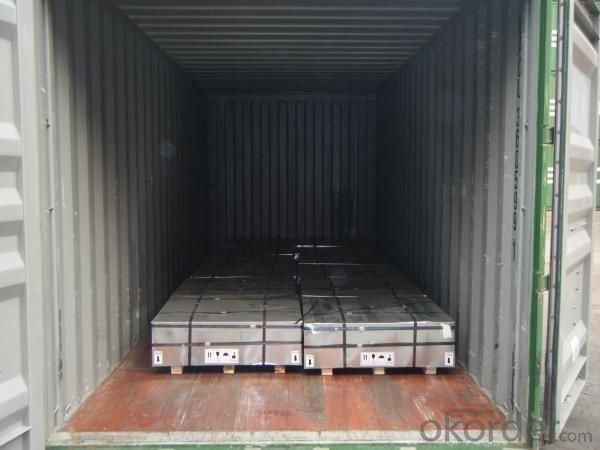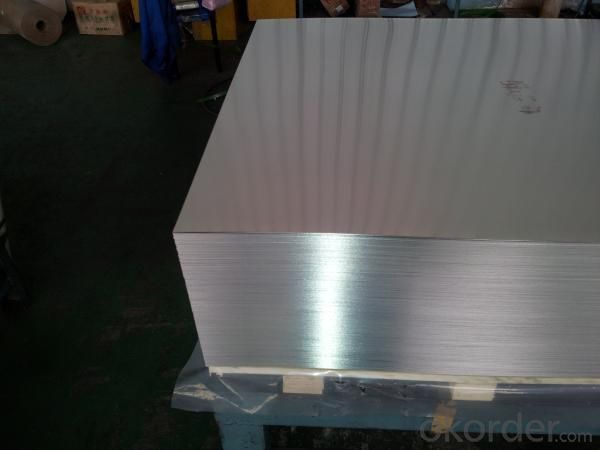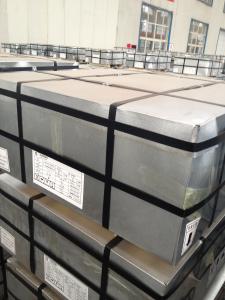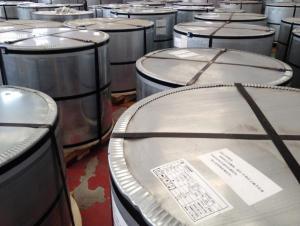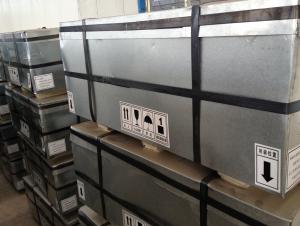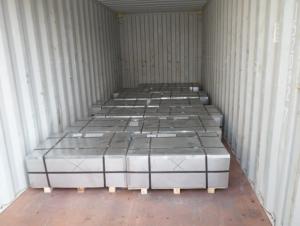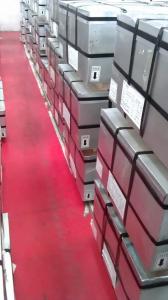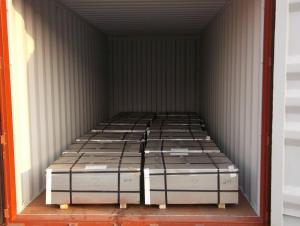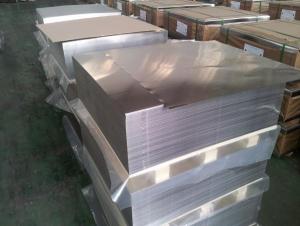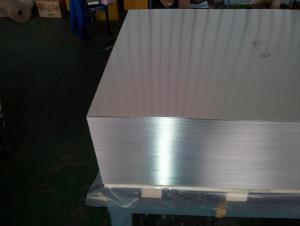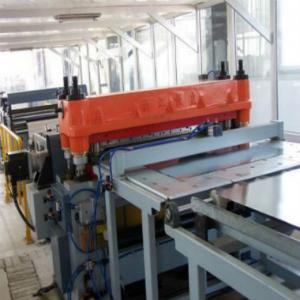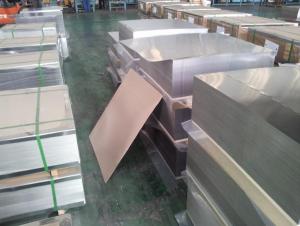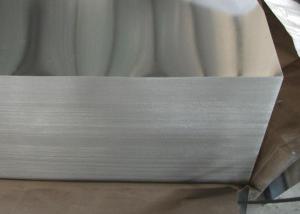Tinplate For Electrical Machinery Parts-CHBA
- Loading Port:
- China Main Port
- Payment Terms:
- TT or L/C
- Min Order Qty:
- 20 Tons ~25 Tons m.t.
- Supply Capability:
- 40000 MT Per Month m.t./month
OKorder Service Pledge
OKorder Financial Service
You Might Also Like
General information of Tinplate For Electrical Machinery Parts
|
Steel Type |
SPCC |
|
Temper (BA&CA) |
T1~T5, DR8 |
|
Coating |
2.8~8.4g/m2 |
|
Thickness & Tolerance |
0.15~0.5mm (Tolerance:±0.01mm) |
|
Width & Tolerance |
600~1000 mm(Tolerance: +2/-0mm) |
|
I.D |
508 MM |
|
Coil Weight |
3~10 MT |
|
Passivation |
311 |
|
Oiling |
DOS |
|
Surface Finish |
Bright ,Stone ,Silver ,Matte |
|
Min Order |
25 Tons for 1 20 feet FCL |
|
Package |
Seaworthy Export Standard Wooden Pallet |
|
Standard Available |
GB/T2520-2000, JIS G3303, ASTM A623, BS EN10202 |
|
Lead Time |
35 days after receiving buyer's original L/C or Prepayment |
|
Special specifications are available on customers' requirements. | |
Technical data of Tinplate For Electrical Machinery Parts
|
Chemical Composition(%) |
Mechanical Property |
|
C:0.04~0.06 |
Yield Strength: (Mpa):280~320 |
|
Si:0.01~0.03 |
TensileStrength: (Mpa):340~390 |
|
Mn:0.18~0.22 |
Elongation:20%~30% |
|
P:0.014~0.016 |
------------- |
|
S:0.006~0.009 |
Application of Tinplate For Electrical Machinery Parts
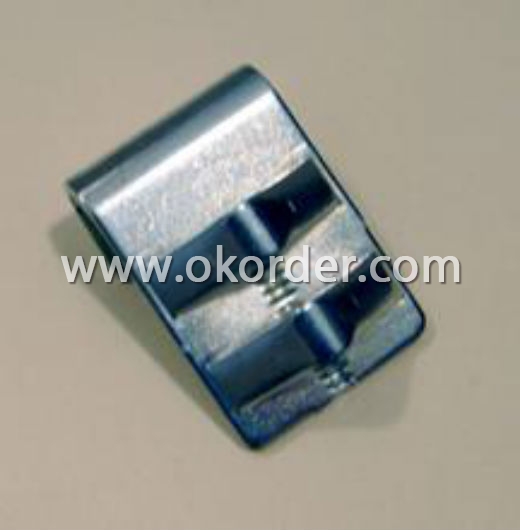
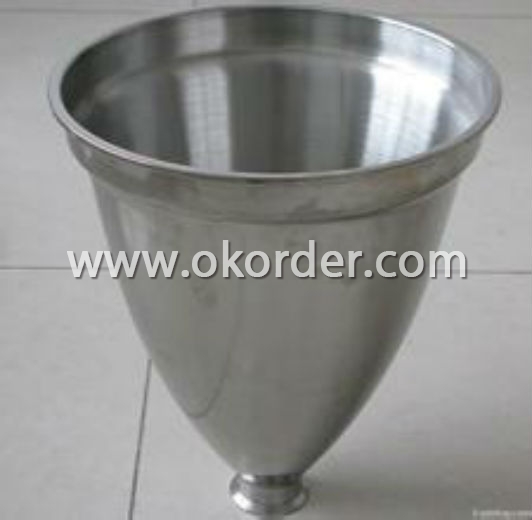
Tinplate is widely used for making all types of containers such as artistic cans, tea cans, painting cans,
chemical package cans and metal printing etc. Its applications are not limited to containers; recently,
tinplate has also been used for making electrical machinery parts and many other products.
Equipment and Facility
Tin Coating Line
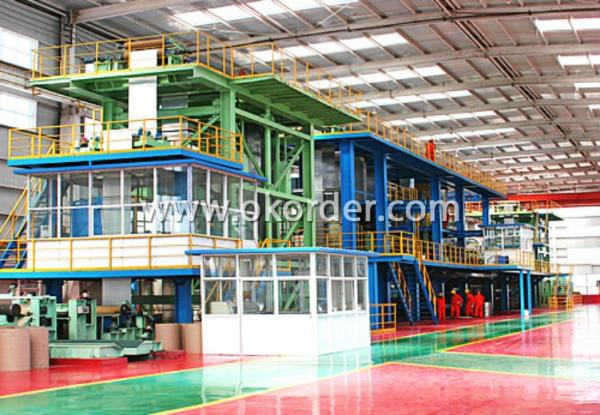
Cold Rolling Mill Batch Annealing Furnaces
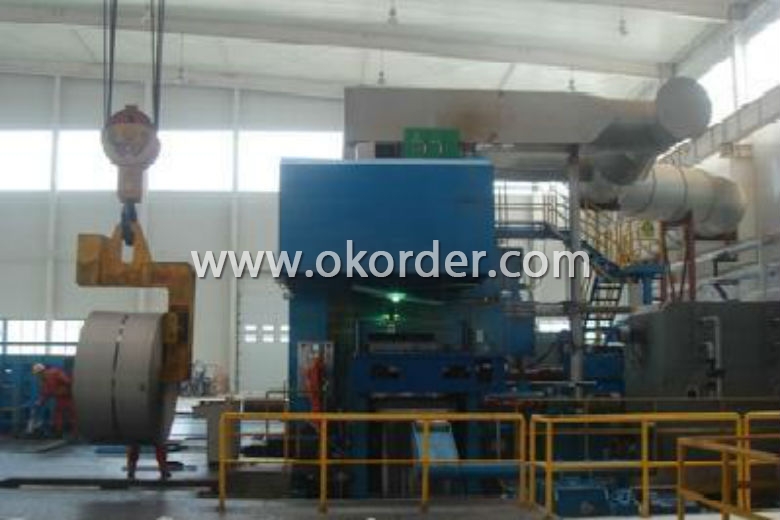
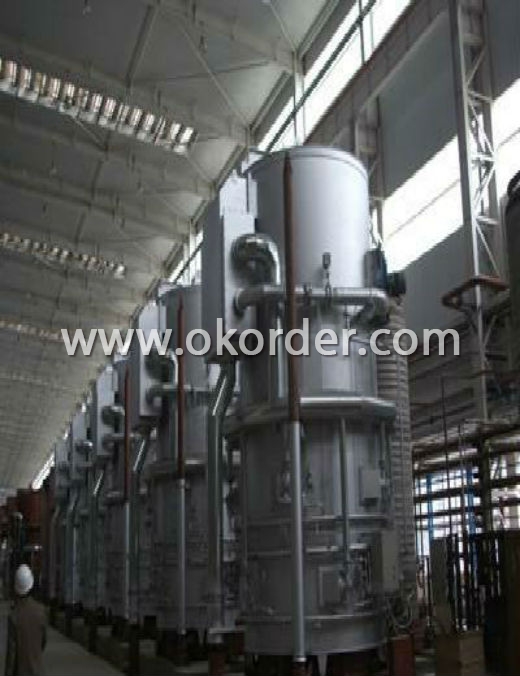
Cutting Line Stock Area
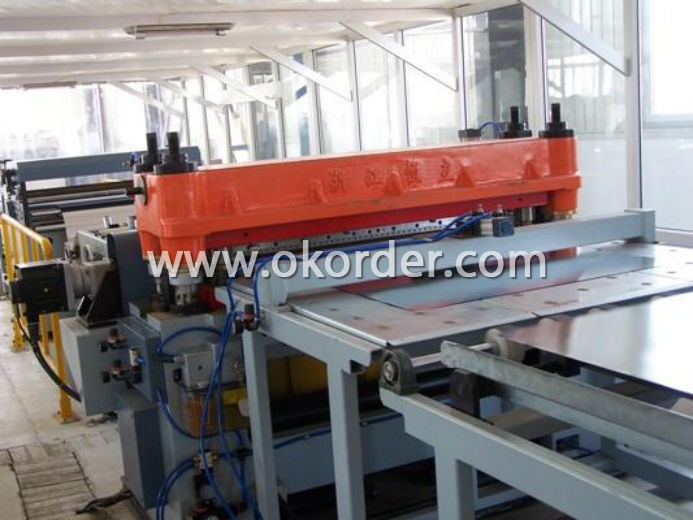
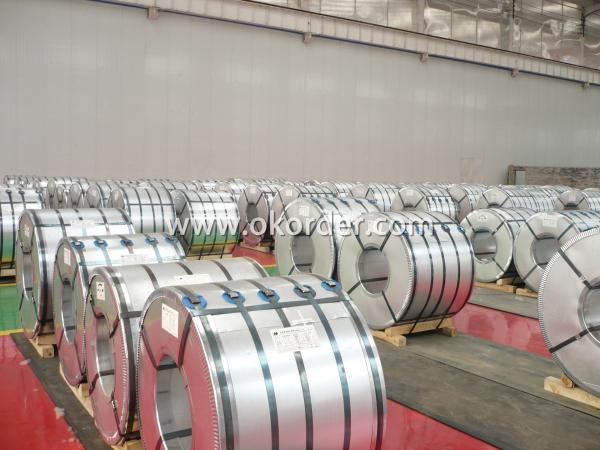
Quantity Control System
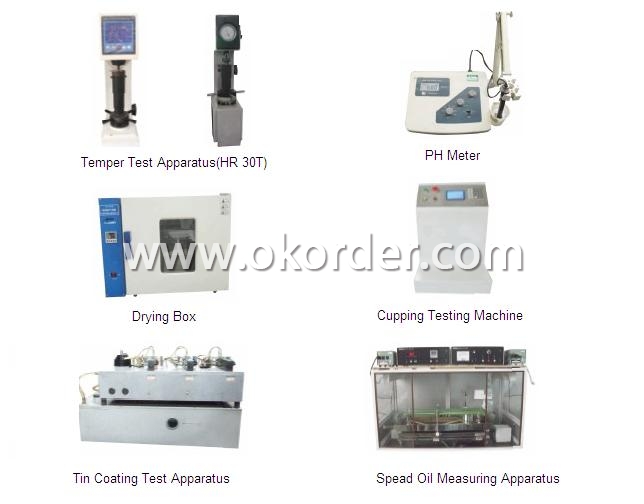
- Q: What are the main factors influencing the demand for tinplate?
- The main factors influencing the demand for tinplate include the growth of the packaging industry, technological advancements in tinplate manufacturing, consumer preferences for sustainable and recyclable packaging materials, government regulations on food safety and product packaging, and the economic growth and urbanization in emerging markets.
- Q: What are the main challenges in tinplate transportation?
- The main challenges in tinplate transportation include ensuring proper packaging and securing of the tinplates to prevent damage during transit, managing the weight and volume limitations imposed by transportation regulations, coordinating logistics and transportation routes to minimize delivery times and costs, and addressing potential issues related to customs and import/export regulations for international shipments. Additionally, maintaining product quality and preventing contamination or corrosion during transportation are also important challenges to overcome.
- Q: What are the common packaging formats for tinplate?
- The common packaging formats for tinplate include cans, containers, and tins.
- Q: How does tinplate compare to glass in terms of packaging applications?
- Tinplate is often preferred over glass for packaging applications due to its durability, lightweight nature, and cost-effectiveness. Unlike glass, tinplate is not prone to breakage, making it safer for shipping and handling. It also offers excellent barrier properties, protecting the contents from air, moisture, and light. Additionally, tinplate is recyclable and has a lower carbon footprint compared to glass, making it a more sustainable choice for packaging.
- Q: What are the main uses of tinplate?
- The main uses of tinplate include packaging food and beverages, manufacturing cans for aerosol products, creating decorative tin containers, and producing electrical equipment enclosures.
- Q: How is tinplate used in the production of aerosol valves?
- Tinplate is used in the production of aerosol valves as it provides a protective and corrosion-resistant coating to the valve components. This prevents the valve from rusting or reacting with the contents of the aerosol, ensuring the reliable and safe functioning of the aerosol valve.
- Q: What are the health and safety concerns associated with tinplate?
- Tinplate, a thin steel sheet coated with a layer of tin, can present some health and safety concerns. One primary concern is the potential for tin contamination in food or beverage products stored in tinplate cans. Prolonged exposure to high levels of tin can lead to health issues such as gastrointestinal problems, kidney damage, and even neurological disorders. Additionally, the manufacturing process of tinplate involves the use of chemicals and substances that may pose risks to workers, such as potential inhalation hazards or skin irritation. Proper handling, storage, and adherence to safety guidelines are crucial to minimize health and safety risks associated with tinplate.
- Q: What are the different ways to recycle tinplate packaging?
- There are several different ways to recycle tinplate packaging. One common method is to separate the tinplate from other materials, such as paper or plastic, and then melt it down to be used in the production of new tinplate products. Another way is to repurpose the tinplate packaging by transforming it into new and creative items, such as decorative storage containers or art pieces. Additionally, tinplate packaging can also be collected and sent to recycling facilities where it will be properly processed and recycled into various new products.
- Q: How does tinplate compare to aluminum packaging in terms of cost?
- Tinplate packaging generally tends to be more cost-effective compared to aluminum packaging. Tinplate is a durable material that is made from thin sheets of steel coated with a layer of tin, making it a cost-efficient option for packaging. On the other hand, aluminum packaging is lightweight and provides excellent barrier properties, but it is typically more expensive due to the higher cost of aluminum as a raw material.
- Q: How can the section of the tinplate be maintained without rust?
- The cross section of the tinplate is free of rust. Both sides have plating, the cross section can use lubricating oil
1. Manufacturer Overview
| Location | Hebei,China |
| Year Established | 2009 |
| Annual Output Value | Above US$100 Million |
| Main Markets | North America;South America; Eastern Europe Southeast Asia; Africa; Mid East Eastern Asia; Western Europe; Central America Northern Europe; Southern Europe; Domestic Market |
| Company Certifications | HACCP;ISO 9001:2008;ISO 14001:2004 |
2. Manufacturer Certificates
| a) Certification Name | |
| Range | |
| Reference | |
| Validity Period |
3. Manufacturer Capability
| a) Trade Capacity | |
| Nearest Port | Tianjin |
| Export Percentage | 11% - 20% |
| No.of Employees in Trade Department | 6-10 People |
| Language Spoken: | English;Chinese |
| b) Factory Information | |
| Factory Size: | Above 270,000 square meters |
| No. of Production Lines | Above 12 |
| Contract Manufacturing | OEM Service Offered |
| Product Price Range | High;Average |
Send your message to us
Tinplate For Electrical Machinery Parts-CHBA
- Loading Port:
- China Main Port
- Payment Terms:
- TT or L/C
- Min Order Qty:
- 20 Tons ~25 Tons m.t.
- Supply Capability:
- 40000 MT Per Month m.t./month
OKorder Service Pledge
OKorder Financial Service
Similar products
Hot products
Hot Searches
Related keywords
